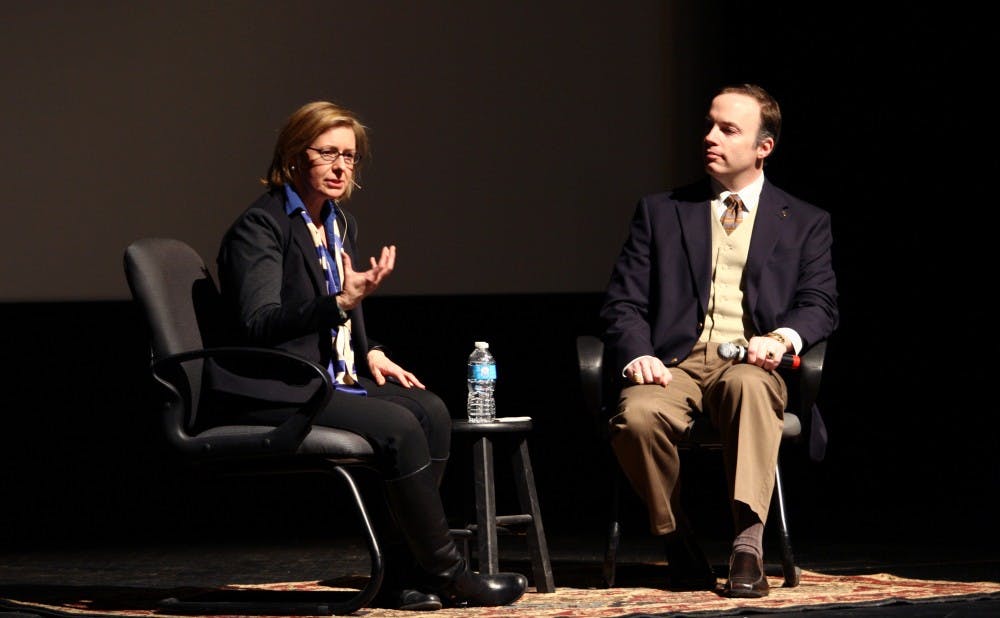Hundreds of people braved the snow to attend “Are We Merely Machines?”, an event hosted by The Veritas Forum regarding the question of what, if anything, makes humans unique from machines.
The discussion was held in Page Auditorium Wednesday evening. Rosalind Picard, the founder and director of the Affective Computing Research Group at the Massachusetts Institute of Technology, gave a speech and was then interviewed by Michael Gustafson, associate professor of the practice of engineering.
Picard drew upon her professional work and research to examine whether or not it is possible to manufacture a conscious, feeling machine. She discussed a robot built at MIT named Kismet, which had the ability to simulate emotional responses through facial expressions, speech and movements. Although Kismet is able to express emotion, Picard said, these are programmed responses, not conscious awareness. There is no evidence to believe that hardware and software is capable of providing emotional experience, though this does not necessarily mean that it is impossible.
Despite this possibility, however, Picard argued that the capacity to build a fully human robot capable of emotional experience, empathy and communication, does not imply that humans are indistinguishable from machines.
If we are machines defined just by our functionality, we’re shutting a wide range of people out of our definition of humanity simply because they are not as able to perform certain functions, Picard said. For example, individuals on the autism spectrum are often overwhelmed by being around people and lose the opportunity to develop communication skills, and thus have trouble demonstrating their humanity.
Thus, rather than drawing the line in terms of functionality, Picard looked to her Christian faith to answer the question of what made humans distinct from robots.
“Meaning is bestowed in relationships—mother to child, human to robot. It is our capacity for relationship with God that is at the heart of what it means to be human,” Picard said. “Our worth is in our relationship with God, the one who is the author of meaning, emotion and consciousness.”
A question and answer session after the discussion showed that a number of audience members were skeptical of Picard's views, with several people inquiring about the place in religion in her arguments.
"It was a very controversial topic, and Dr. Picard framed the argument in an extremely interesting way," said sophomore Audra Bass.
Get The Chronicle straight to your inbox
Signup for our weekly newsletter. Cancel at any time.

